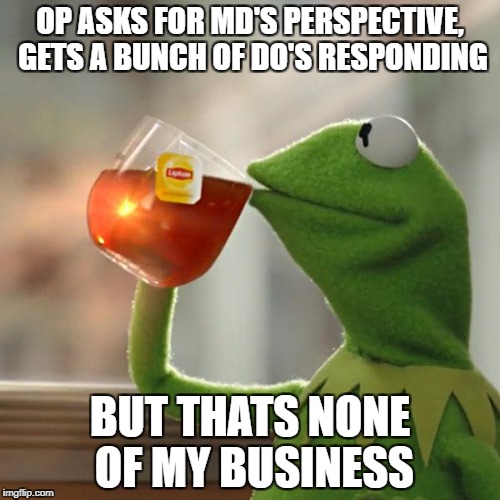- Joined
- Jan 21, 2010
- Messages
- 6
- Reaction score
- 0
I am just curious
What is covered in MD school that is not covered in DO school?
I tried looking online and on YouTube but every time I look up this question the answer is always from a DO perspective where they say they learn medicine from a holistic approach but also learn body manipulation.
The question I have is
What classes are taught in MD school that are not taught in DO school.
Naturally it doesn’t make sense for two programs to take the same amount of time to finish, yet one of the programs teaches everything and more compared to the other program
What is covered in MD school that is not covered in DO school?
I tried looking online and on YouTube but every time I look up this question the answer is always from a DO perspective where they say they learn medicine from a holistic approach but also learn body manipulation.
The question I have is
What classes are taught in MD school that are not taught in DO school.
Naturally it doesn’t make sense for two programs to take the same amount of time to finish, yet one of the programs teaches everything and more compared to the other program




